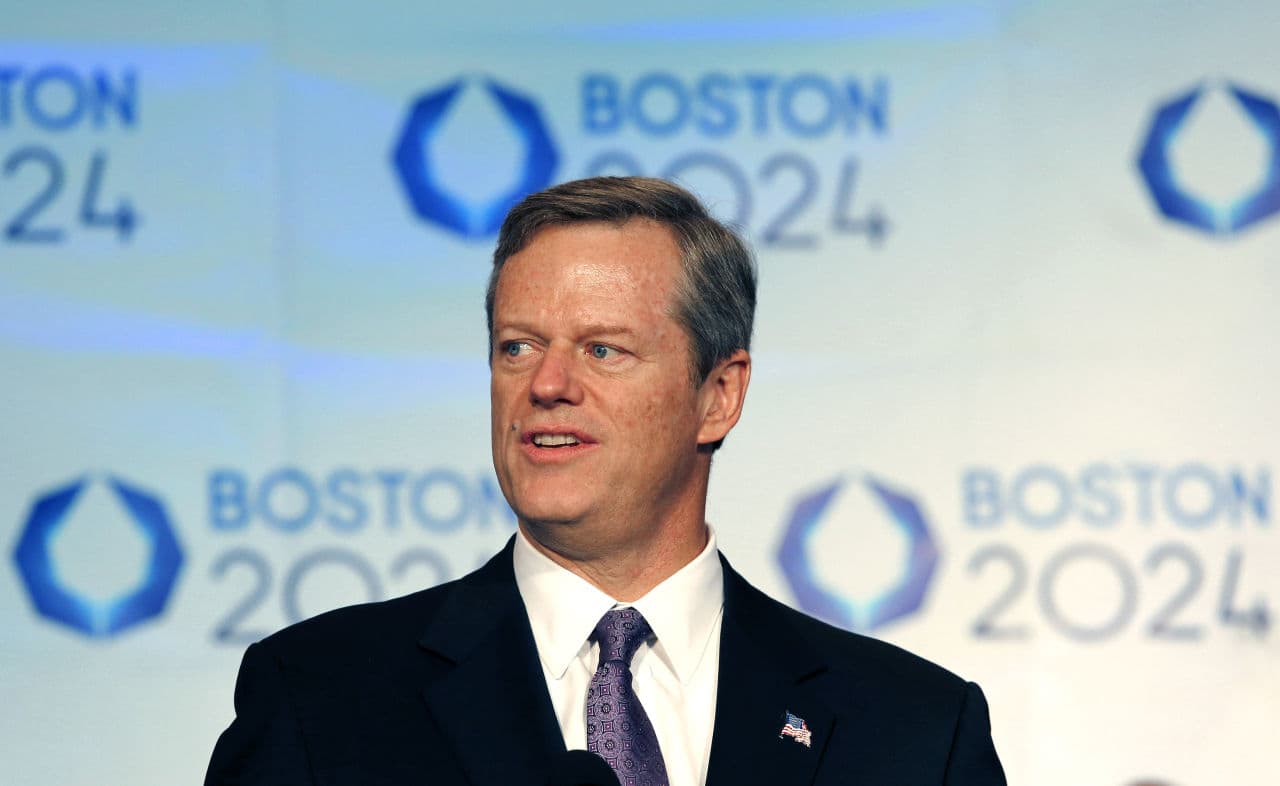Advertisement
Boston's Olympic Dream May Be Dead Now, But Debate Over Old Plans Is Quite Lively
ResumeCall it an exercise in futility. Call it a blueprint for an alternate future. Either way, Boston’s Olympics bid may be dead, but the debate lives on ... at least another day.
A state-funded analysis of the bid, released Tuesday, questions the financial assumptions of Boston 2024. But the local organizing group said the report, which is costing state taxpayers as much as $250,000, has errors in it.
State lawmakers and the governor hired the Cambridge firm The Brattle Group to assess the plan to host the Summer Olympic Games put forward by the group Boston 2024. Long-awaited, but now mostly moot, the report says the private nonprofit behind the bid underestimated the costs of staging the games -- and, under one projected scenario, by as much as $3 billion.
Had Boston 2024 and the U.S. Olympic Committee not already pulled the bid, Gov. Charlie Baker said he could not have given his support.
"If I got this report, we were where we were before, and the USOC showed up and said: ‘We need you to commit to these 40 guarantees.’ I would not be able or willing to commit to that," he said. "And by the way, I don’t think the speaker or the Senate president would be either."
But Baker stopped short of calling the bid’s financial assumptions too optimistic. He praised Boston 2024 for opening its books to The Brattle Group. He said the organizing group did incredible work, but needed more time to find ways to lower the uncertainty of financing such a complicated project with a huge budget.
"You are talking about a lot more than $4 billion. So a 10 percent miss is $400 million, $500 million. These are really big numbers! And in that context, a much longer lead time with much more time to think about trying to narrow what the risks are would be more appropriate," Baker said. "In this particular case, I don’t believe we had it."

Not everyone was so forgiving about the risks raised in the report.
"We think Massachusetts taxpayers dodged a bullet here," said Chris Dempsey, of the opposition group No Boston Olympics.
He said the outside analysis shows voters were right to be skeptical.
"Boston 2024 was significantly underestimating the costs, and it was really the commonwealth taxpayers that were going to be the insurance policy, when there were the inevitable cost overruns," Dempsey said.
However, Boston 2024 took issue with many aspects of the report. For example, The Brattle Group called Boston 2024’s $50 million price tag for a media broadcast center a far cry from London’s press center during the 2012 games, concluding Boston 2024’s bid had a $450 million shortfall on this point alone.
But London 2012 built a permanent facility designed for tech firms to move into after the games. Boston 2024 planned to lease an existing facility. The Olympics boosters consider this cited shortfall and other conclusions in the report misrepresentations and errors. The Brattle Group said it was not provided sufficient information.

State political leaders were reluctant to question the accuracy of the report that taxpayers paid for and to get into a now-academic argument over hosting the Olympics. Baker instead tried to look for salvage value.
"I think there are a lot of things in there that are worth pursuing," he said.
Baker said the report will still influence policymakers. That’s because many of the ideas the Olympics bid proposed live on, such as the neighborhood development where the Olympic Stadium was to be.
"A lot of the work around Widett Circle is absolutely worth pursuing and considering," the governor said. "I think some of the stuff around the continuation of the Emerald Necklace is worth pursuing. I would love to figure out a way to connect the Seaport District to Columbia Avenue and the rest of Boston."
So would have Boston 2024.
This segment aired on August 19, 2015.
